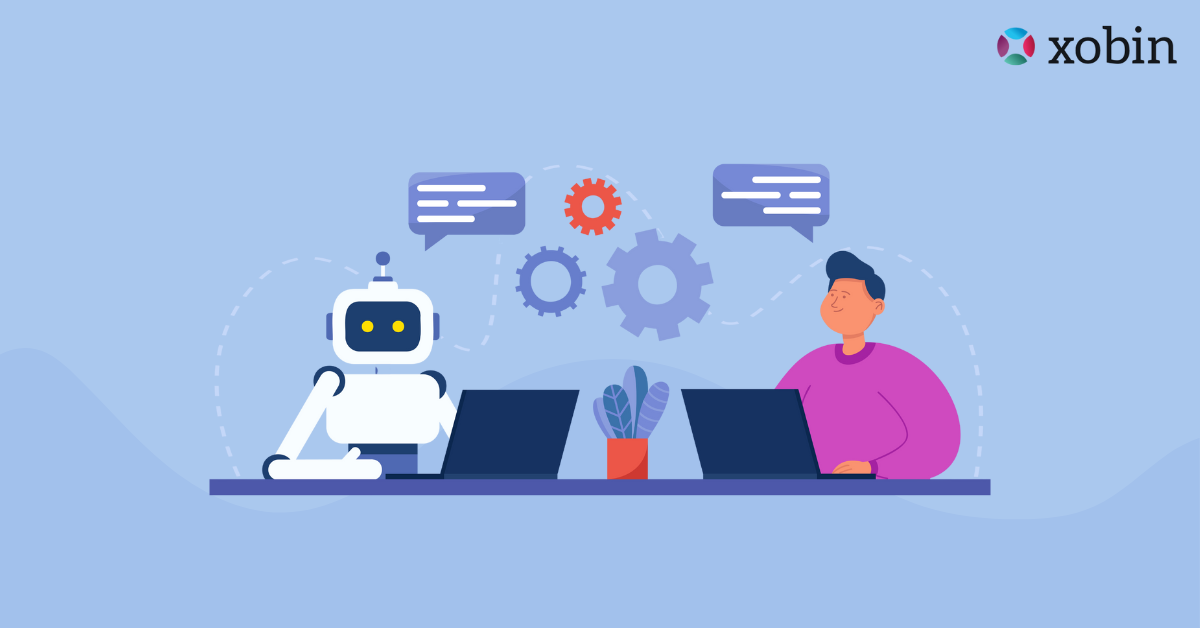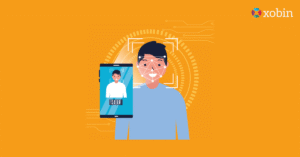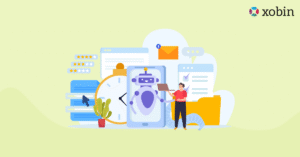Recruitment has always been a critical business function, but in today’s competitive landscape, it’s evolving faster than ever. The rise of AI in recruitment is revolutionizing how companies source, screen, interview and select candidates. Top talent acquisition heads are increasingly investing in AI recruitment technologies to build smarter, faster, and more inclusive hiring strategies.
Table of Contents
In this comprehensive guide, we’ll explore what AI in recruitment means, how it’s currently used, its benefits, challenges, and future trends. By the end, you’ll understand why embracing AI-powered recruiting is crucial for modern organizations and how it can revolutionize your talent acquisition strategy.
Let’s explore.
What is AI Recruiting?
AI in recruitment refers to the use of artificial intelligence to automate and optimize hiring processes. It enhances decision-making by analyzing resumes, shortlisting candidates, and predicting job fit using data. By streamlining tasks like screening and assessments, AI helps recruiters focus on strategic hiring. This technology improves efficiency, reduces bias, and supports smarter, faster talent acquisition in today’s competitive hiring landscape.
How Is AI Used in the Recruitment Process Today?
AI in recruitment is no longer a future idea; it plays a key role in today’s hiring process. Companies now use AI recruitment software to automate tasks and improve each step of hiring, from sourcing talent to onboarding new employees.
Here’s how AI is reshaping the way organizations hire today:
AI Resume Screening
Manually reviewing hundreds of resumes can be tedious and error-prone. AI resume screening uses natural language processing (NLP) and machine learning algorithms to analyze resumes, identify relevant skills, experience, and qualifications, and rank candidates based on job fit. This reduces human bias and speeds up the initial candidate shortlisting process.
Automated Candidate Shortlisting
Beyond screening, automated candidate shortlisting allows hiring teams to focus on top-quality candidates by filtering out less suitable profiles using predefined criteria. This saves valuable time and resources.
AI Candidate Screening and Talent Assessment
AI candidate screening tools conduct preliminary assessments, including skill tests and personality evaluations, to predict candidate performance and cultural fit. These assessments provide data-driven insights that help HR leaders make better hiring decisions.
AI Video Interviewing
As remote work grows, companies now rely more on AI-powered interview tools. These tools study facial expressions, voice tone, and word choices to assess how candidates respond. As a result, employers gain an extra layer of insight without needing face-to-face interviews early in the process.
Predictive Analytics in Hiring
Recruiters use past hiring data to predict which candidates will perform well, stay longer, and bring long-term value. This proactive approach improves quality of hire and reduces employee turnover.
Recruitment Automation with AI
From scheduling interviews to sending follow-ups, recruitment automation using AI reduces administrative workload, ensuring recruiters spend more time on strategy and engagement.
Benefits of Using AI in Recruitment
Integrating AI in recruitment offers far more than just time savings. It transforms the hiring process into a strategic, data-driven engine that attracts and retains top talent. Here are some of the key benefits:
Improved Hiring Efficiency
AI hiring software automates repetitive tasks, allowing hiring teams to move faster through the recruitment funnel. This speeds up the entire process, helping companies fill critical roles quicker.
Enhanced Candidate Quality
By leveraging AI-driven recruitment tools like AI-based talent assessment and resume screening, companies can identify candidates who not only match the job description but also fit the company culture and long-term growth plans.
Bias Mitigation with AI
Human bias poses a major challenge in recruitment. AI helps remove bias by using algorithms that focus only on skills and qualifications. As a result, it reduces unconscious bias related to gender, ethnicity, or age.
Cost Savings
Automating time-consuming recruitment tasks with AI-based recruitment software reduces reliance on large recruiting teams and expensive external agencies, resulting in significant cost savings.
Data-Driven Decision Making
AI-powered recruiting provides actionable insights through data analytics, helping HR leaders measure recruitment KPIs like time-to-hire, quality-of-hire, and candidate engagement.
Better Candidate Experience
Using recruiting bots and chatbots powered by AI, companies can engage candidates 24/7, answer FAQs, and keep applicants informed, improving their overall experience.
Top Tools and Technologies Driving AI Hiring
The rapid evolution of AI in recruitment has given rise to a wide array of tools and technologies that streamline hiring workflows and improve talent decisions. These innovations not only reduce manual effort but also enhance precision, speed, and candidate experience across the recruitment journey.
Here are the most impactful technologies transforming AI hiring today:
AI-Enhanced Applicant Tracking Systems (ATS)
Modern applicant tracking systems do more than just store resumes. Today’s AI recruitment software uses smart features like resume parsing, candidate ranking, and automated communication. These tools help recruiters focus on top candidates while handling repetitive tasks like scheduling interviews and sending status updates.
Recruitment Chatbots and Virtual Assistants
AI-powered chatbots are revolutionizing candidate engagement. These virtual assistants can handle a wide range of tasks, from answering FAQs and pre-screening candidates to providing real-time updates. As a result, they significantly improve the candidate experience while reducing recruiter workload.
AI Resume Screening Tools
Automated resume screening applies machine learning and natural language processing (NLP) to review resumes quickly. These tools find relevant skills, match job roles, and spot key experiences more accurately than manual methods. As a result, companies can discover top talent much faster.
AI Video Interviewing Platforms
AI-driven video interviewing platforms analyze facial cues, voice tone, and verbal responses to assess soft skills and personality traits. They add an extra layer of objectivity to interviews, especially in early stages, and support asynchronous evaluations that save time for both candidates and hiring teams.
Predictive Analytics Software
Predictive analytics in recruitment enables HR teams to forecast candidate success, retention, and job performance using historical data. This technology supports better decision-making and helps organizations build a workforce aligned with long-term goals.
Natural Language Processing (NLP)
NLP is the foundation behind many AI recruiting tools. It powers features like contextual resume parsing, sentiment analysis during interviews, and intelligent matching between job descriptions and candidate profiles.
Automated Candidate Shortlisting Tools
AI systems quickly filter large applicant pools using customizable criteria like skills, qualifications, and location. This smart shortlisting speeds up the hiring process and boosts efficiency, all while maintaining the quality of candidates.
AI Talent Assessment Platforms
These platforms conduct structured assessments to evaluate technical skills, cognitive abilities, and behavioral competency. They provide data-backed insights that help recruiters make unbiased hiring decisions, especially when screening for remote or high-stakes roles.
Challenges of Using AI in Hiring + Solutions
While the benefits are significant, there are challenges that organizations face when implementing AI in recruitment.
Data Privacy and Compliance Risks
AI systems rely heavily on personal and behavioral data to function well. However, this raises concerns about data protection, especially when dealing with sensitive candidate information.
Solution: Choose AI recruitment software that adheres to global data privacy regulations like GDPR. Ensure candidates are informed about how their data will be used and stored. Transparent privacy policies and secure data handling practices build trust and safeguard your employer brand.
Algorithmic Bias and Fairness
AI models learn from historical data, which may carry existing human biases. If not properly managed, AI in hiring could unintentionally perpetuate discriminatory patterns.
Solution: Regularly audit AI candidate screening tools and train models using diverse datasets. Combine AI recommendations with human review to ensure ethical hiring choices. Today, leading AI recruiting software includes bias-detection features that help promote fairness.
Lack of Transparency in Decision-Making
Candidates often don’t understand how AI evaluates their resumes or assessments, which can lead to mistrust in the hiring process.
Solution: Use explainable AI technologies that clearly highlight why the system selected or rejected a candidate. Then, share these insights with both hiring managers and candidates to support a more transparent and inclusive hiring process.
Integration with Existing HR Systems
Integrating new AI hiring software into current HR tech stacks can be complex and resource-intensive, especially for large enterprises.
Solution: Opt for AI-based recruiting platforms with robust APIs and pre-built integrations. Work closely with IT and vendor support teams to ensure a smooth rollout. Scalable platforms like Xobin make integration seamless, reducing disruption.
Internal Resistance and Skill Gaps
Not all recruitment professionals are ready to adopt AI in recruitment. Some fear job displacement, while others lack the technical skills to use AI tools effectively.
Solution: Position AI as a support tool that enhances recruiter productivity rather than replacing their roles. Invest in upskilling your HR team to use AI recruitment tools confidently. Change management and training are key to fostering adoption.
Over-Reliance on Automation
While automation accelerates tasks, excessive dependence on recruitment automation with AI may overlook critical human judgment in evaluating cultural fit or soft skills.
Solution: Balance automation with human interaction to create the right mix. Use automated pre-employment testing for screening and assessments, but ensure final hiring decisions involve experienced HR professionals. A hybrid approach delivers the best outcomes.
Examples of Companies Successfully Using AI for Recruitment
Many leading organizations are leveraging AI in the recruitment process to optimize hiring.
- Unilever implemented AI-powered recruiting tools for initial screening and saved 75% of recruiter time while improving candidate quality.
- IBM uses predictive analytics in hiring to identify potential candidates and reduce turnover.
- Hilton adopted AI video interviewing platforms to scale global hiring while enhancing candidate experience.
- Siemens integrated AI recruitment software to automate resume screening and shortlisting, reducing time-to-hire significantly.
These examples highlight how companies using AI for recruitment gain a competitive edge by combining technology with human insight.
Ethical Implications of AI in Recruitment: Is AI Fair and Accurate?
As more organizations adopt AI in recruitment, ethical questions naturally follow. You must evaluate not just the efficiency of AI hiring software, but also its fairness, accuracy, and impact on candidate experience.
Fairness in AI-Driven Recruitment
One of the key promises of AI-powered recruiting is the reduction of human bias. By focusing on objective data such as skills, qualifications, and experience, AI systems aim to level the playing field for all candidates. However, the fairness of these systems depends heavily on the quality and diversity of the training data.
When AI learns from biased historical hiring data, it can unintentionally repeat those patterns. For instance, if past hiring favored specific demographics, the AI might copy that trend unless someone checks it. That’s why fairness in AI-powered recruiting requires ongoing efforts, including regular monitoring and active human review.
Bias in Algorithms
One of the most pressing concerns in AI recruiting is algorithmic bias. If the data used to train AI models reflects past hiring decisions that favored certain demographics, the technology can unintentionally perpetuate discrimination. For instance, an AI resume screening tool trained on historically biased data may unfairly filter out qualified candidates from underrepresented groups.
To ensure fairness, organizations must regularly audit their systems for bias. This includes using diverse training datasets and incorporating human oversight throughout the AI hiring process.
Accuracy and Transparency
AI recruiting tools are only as accurate as the algorithms behind them. While these tools can process vast amounts of information with speed and precision, they sometimes lack transparency. Candidates and hiring managers alike may not fully understand how the system arrived at a particular decision.
This lack of visibility can create concerns about accountability. To build trust, companies should use explainable AI models that clearly define evaluation criteria. Transparency ensures that both recruiters and applicants are confident in the fairness of the AI hiring process.
Candidate Privacy and Consent
Using AI recruitment software involves handling sensitive personal data, from resumes and assessments to video interview recordings. Ethical use of AI requires strict adherence to data privacy regulations like GDPR and a commitment to candidate consent and data protection.
Companies should clearly explain to applicants how they use, store, and analyze their data. This approach builds trust and supports a positive candidate experience during the AI-driven recruitment process.
The Role of Human Oversight
Despite the growing capabilities of AI in hiring, it should never replace human judgment entirely. Human oversight is essential for validating AI recommendations, making final hiring decisions, and ensuring empathy and contextual understanding remain part of the process.
AI should serve as a strategic assistant, enhancing accuracy and efficiency, while recruiters maintain ethical responsibility and decision-making authority.
Equal Opportunity and Accessibility
Another ethical concern is ensuring that AI tools are accessible and inclusive. For example, candidates with disabilities or those from non-traditional educational backgrounds may be disadvantaged by systems that aren’t built with accessibility in mind.
Leading AI-based recruitment software now incorporates inclusive design and accessible talent assessments to create a level playing field for all applicants.
Future Trends of AI in Recruitment
As hiring landscapes evolve, AI in recruitment is set to undergo significant advancements. These future trends reflect how organizations will continue to leverage intelligent automation to stay agile, competitive, and talent-focused.
Hyper-Personalized Candidate Experiences
The next phase of AI-powered recruiting will focus on delivering truly personalized candidate journeys. Instead of generic outreach, AI will analyze past behavior, job preferences, and skill sets to tailor job recommendations and communication. This hyper-personalization will enhance candidate engagement and drastically reduce drop-off rates during the hiring process.
Predictive Hiring with Greater Accuracy
Future-ready AI hiring software will go beyond basic screening. Using advanced predictive analytics in the hiring process, recruiters will be able to forecast a candidate’s future job performance, cultural fit, and likelihood to stay. These data-driven insights will support strategic decision-making and significantly improve quality-of-hire metrics.
Voice-Enabled AI Recruiting
With the rise of smart devices and digital assistants, voice-enabled recruiting bots will become a practical tool. Candidates may soon interact with recruitment systems using natural speech, making the application process more accessible and conversational. This not only improves user experience but also widens the talent pool by reducing tech-related barriers.
Continuous Learning AI Models
Unlike static systems, next-generation AI recruitment software will incorporate self-learning capabilities. These continuous learning AI models will evolve by analyzing new hiring data, candidate feedback, and performance outcomes. Over time, this enables more accurate, adaptive, and fair recruitment processes that improve with every cycle.
Integration with Workforce Planning
The role of AI in recruitment is shifting from reactive hiring to strategic workforce development. AI tools will increasingly integrate with long-term workforce planning systems to predict future talent needs, identify skill issues, and proactively build pipelines. This alignment empowers HR and leadership teams to prepare for business growth and market changes with agility.
Real-Time Labor Market Intelligence
In the coming years, AI in recruitment will give recruiters real-time labor market insights. It will show key details like salary trends, competitor hiring activity, and local talent availability. With this data, recruiters can shape smarter sourcing strategies and gain a strong advantage. They can also tweak campaigns instantly as outside conditions shift.
AI Talent Marketplaces
As traditional job boards evolve, AI talent marketplaces will emerge to connect employers and candidates more efficiently. These platforms will use AI to match candidates not just by keywords, but by deeper attributes like behavioral traits, values, and career aspirations. This smart matchmaking will improve hiring success rates and candidate satisfaction.
AI-Powered Internal Mobility
Beyond external hiring, AI-driven recruitment will also focus on optimizing internal talent. Using AI for hiring within the organization helps identify employees ready for new roles, learning opportunities, or leadership development. This supports employee retention and ensures a better return on talent investment.
Lead the Future of Hiring with Xobin!
Top HR leaders are already leveraging AI in hiring processes to create inclusive, data-driven strategies. And platforms like Xobin are leading the way, offering scalable, ethical, and intelligent hiring solutions.
At Xobin, we’re at the forefront of this transformation. Our intelligent, end-to-end AI recruitment software empowers organizations to hire the best talent 20x faster, smarter, and without bias. Whether you’re streamlining volume hiring or identifying niche talent, Xobin delivers the AI-powered recruiting edge your business needs to win the talent war.
Ready to transform your hiring process with smart, AI-driven solutions? Book a personalized demo with Xobin today to experience the future of hiring.






